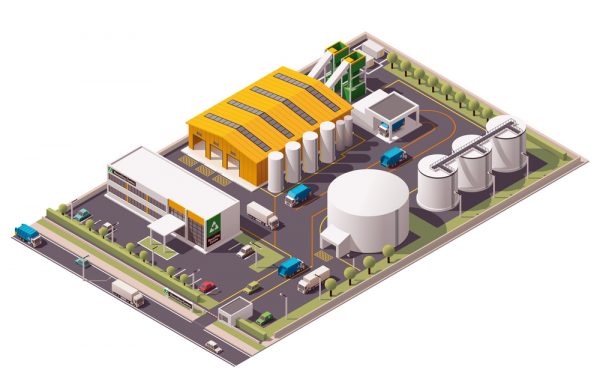
Some, by now, may be familiar with the tricky, cost-benefit conundrum that sometimes plagues the plus sides of recycling. The general argument is that the costs of recycling outweigh the benefits – a concept that usually leaves recycling advocates feeling more than a bit frustrated.
But there is yet another issue beyond the cost-benefit analysis question in recycling, and that is the issue of sustainable recycling.
The sustainable recycling issue has more to do with the long-term efficiency of the recycling process than with the costs and benefits of recycling itself, but it’s just as viable a question. Mainly, it means paying sharp attention to whether the methods, processes and efforts involved in recycling, which in itself is an environmentally sound principle, are equally environmentally sound.
It is certainly easy to see what happens when the process of recycling is not environmentally sound and sustainable. For example, a recycling process involving the use of an excessive amount of energy or involving the use of an excessive amount of fossil fuels such as oil and gas for transport to other countries could have the effect of nullifying the entire effort to recycle and its positive benefits.
Sustainable vs. Not Sustainable Recycling
Synonomous to the idea of an environmentally sound and sustainable recycling process is the idea of a sustainably developed recycling process. Sustainable development, of course, is routinely stated according to the definition laid out in the Brundtland report – development that meets the needs of the present without compromising the ability of future generations to meet their own needs.
In terms of recycling, sustainability, then, means going beyond a cost-benefit analysis. It means responsibly managing recycling processes and selecting technologies that do not compromise future conditions and relationships between people and planet simply to meet the present need for reducing waste – which, without question, is a pressing need, indeed.
Why it Matters
Our finite resources make recycling a top priority, but they also make sustainable recycling just as crucial. When the process of recycling consumes significant amounts of finite resources, the question of why sustainable recycling matters comes sharply into focus.
A look at the general recycling process reveals a number of conditions that could easily squander resources. Trucks used to pick up collectible recycling materials use gas and emit carbon. The sorting process consumes electricity derived from fossil fuels. Large water supplies may be necessary in order to process recycled material. In fact, there are a number of instances within the recycling process that could make it a less than sustainable endeavor if the process is not monitored for present, and future, efficiency.
Making Recycling More Efficient
There is a definite reason to make recycling the most efficient and sustainable process it can be – particularly when recycling’s biggest detractors are so vocal about the possibility that it can’t be sustainable, and it’s too costly. The general argument goes that the process of recycling actually uses more resources than it conserves or at most cancels itself out in the big scheme of things.
In fact, some think the future of recycling looks rather dismal. That’s the tone writer and author John Tierney took in his New York Times think piece entitled, “The Reign of Recycling.” According to Tierney, labor intensity and environmental costs associated with recycling make it an “increasingly inexpensive” way to address the nation’s issues.
Perhaps this is why many recyclers have taken steps to adhere to certain sustainability standards to combat anti-recycling sentiments hinging on a lack of sustainability. A number of international recycling centers, including ERI, adhere to the dictates and regulations of the ISO 9000 and 14000 series – a globally recognized sustainability management certification standard as well as the Basel Action Network stainable eStewards certification standards.
e-Stewards is well-known for its sustainability emphasis. The standard developed based on a call among recycling industry key players for more rigorous regulations that could communicate a commitment to environmental protection to their customers. The e-Stewards certification emphasizes, among other principles, the need to restrict the transport of materials for recycling to impoverished third world countries.
In addition, the EPA-backed SMM Challenge is yet another sustainability measure that is open to the recycling industry. This standard also emphasizes sustainability – of both recycling and the recycling process.
Recycling companies have also invested in sustainable business practices such as the triple bottom line approach. This practice, sometimes referred to as People, Planet and Profits, aims at creating business value beyond traditional profit-building measures and through social and environmental consideration.
Sustainable recycling plants also take steps to lessen environmental impact through sustainable, “green” initiatives. This may involve using less energy to light facilities by replacing lighting systems using LED technology, substituting propane equipment, such as forklifts, with electrical equipment to reduce pollution, or the use of hybrid vehicles for the transport of recycled materials.
Such measures are important to look for when deciding on a recycling center that’s worth your services.
Recycling Plants Make Further Progress Towards Sustainable Methods
For recyclers, sustainability often means ensuring that the processes used to recycle electronic waste and other waste materials are not creating environmental costs even while reducing the costs, both economic and environmental, of dizzying amounts of waste steadily increasing on the planet. Steps toward this goal may include adhering to certain sustainability management certifications and standards or “going green” in terms of plant operations.
The journey toward sustainability in the recycling industry is a high stakes measure. Hanging delicately in the balance is consumer confidence, so often swayed by sentiments that say recycling costs more than it helps.
On the other side of the scale is the tremendous need for waste disposal that is both economical and environmentally friendly. As recycling plants push forward toward greater progress in the area of sustainable recycling methods, these complex challenges remain as key issues to be addressed on an ongoing basis.